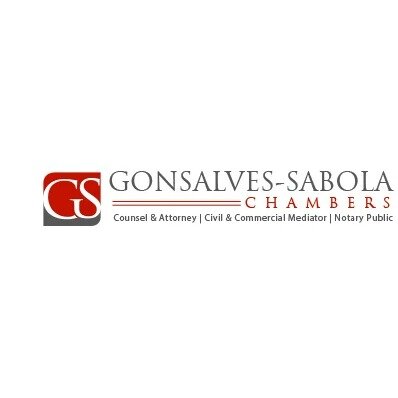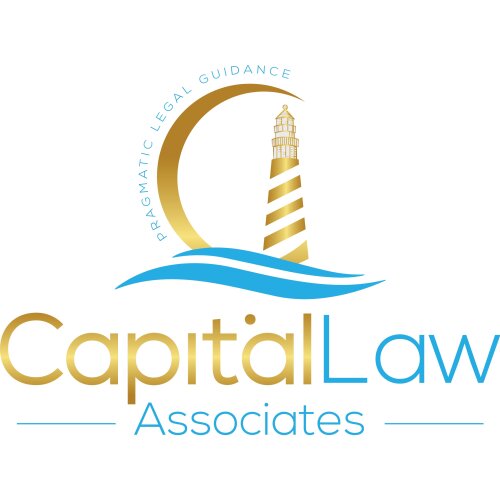Best International Trade Law Lawyers in Nassau
Share your needs with us, get contacted by law firms.
Free. Takes 2 min.
List of the best lawyers in Nassau, Bahamas
About International Trade Law in Nassau, Bahamas
International Trade Law in Nassau, Bahamas plays a pivotal role in facilitating and regulating trade activities between Bahamian businesses and international partners. The Bahamas is strategically positioned as a major financial hub, and its legal framework supports various trade-related activities, including import/export regulations, customs duties, and dispute resolution. The country's legal system is based on English common law, with statutes and regulations tailored to cater to both domestic and international trade flow. As a member of the World Trade Organization (WTO) and other international trade agreements, the Bahamas adheres to global trade standards, providing stability and predictability in trade transactions.
Why You May Need a Lawyer
Legal assistance in International Trade Law can be crucial in several scenarios, including:
- Navigating complex trade agreements and contracts with foreign partners.
- Addressing disputes related to contractual obligations or trade tariffs.
- Ensuring compliance with Bahamian and international trade regulations and standards.
- Managing risks associated with cross-border transactions and logistics.
- Conducting due diligence on foreign entities or local industries involved in trade.
- Assistance with customs procedures and documentation for import/export activities.
- Guidance on investment opportunities and incentives in the Bahamian trade sector.
Local Laws Overview
The key aspects of local laws relevant to International Trade Law in Nassau include:
- Customs Management Act: This governs the import/export process, outlining duties, tariffs, and customs procedures.
- The Tariff Act: Regulates the classification and applicable duties on goods imported into the Bahamas.
- Trade Act: Facilitates the promotion and regulation of international trade relations and agreements.
- Standards Act: Ensures that goods meet Bahamian safety and quality standards through the Bahamas Bureau of Standards.
- Intellectual Property Rights: Protects innovations and original creations within international trade agreements.
Frequently Asked Questions
What is the role of the Bahamas in international trade?
The Bahamas, with its strategic location and favorable trade policies, plays a significant role as a financial and commercial hub, supporting international trade through its ports and legal systems.
How can a lawyer help with international trade agreements?
A lawyer can assist in drafting, reviewing, and negotiating trade agreements to protect your interests and ensure compliance with Bahamian and international standards.
What are the primary trade regulations I need to be aware of?
Key regulations include the Customs Management Act, Trade Act, and the Tariff Act, which govern duties, tariffs, and compliance standards for trading in the Bahamas.
Do I need a lawyer for importing goods into the Bahamas?
While not mandatory, having a lawyer can help navigate customs duties, documentation, and ensure adherence to legal requirements.
What disputes typically arise in international trade, and how can they be resolved?
Common disputes include contract breaches and tariff disagreements, resolved through negotiation, arbitration, or litigation with legal assistance.
What are the intellectual property considerations in trade?
Intellectual property laws protect innovations and creative works in trade. A lawyer can help secure these rights within Bahamian and international frameworks.
How does the Bahamas adhere to WTO guidelines?
As a WTO member, the Bahamas incorporates guidelines and standards into its trade laws, ensuring compliance in international trade practices.
What incentives are available for international traders in the Bahamas?
The government offers various incentives like tax breaks and investment opportunities to promote international trade and business activities.
Can legal representation assist in customs clearance?
Yes, legal experts can ensure compliance with customs regulations, assisting with paperwork and strategic advice to avoid potential legal issues.
What is the process for resolving trade disputes?
Trade disputes may be resolved through negotiation, mediation, arbitration, or in court, with a lawyer's guidance at each step to secure a favorable outcome.
Additional Resources
For those seeking to understand more about International Trade Law in Nassau, the following resources may be helpful:
- The Bahamas Customs Department - for matters related to customs duties and processes.
- The Ministry of Financial Services, Trade & Industry, and Immigration - to understand trade policies and agreements.
- The Bahamas Chamber of Commerce and Employers’ Confederation - a resource for networking and understanding the business climate.
- The Bahamas Bureau of Standards - for meeting safety and quality requirements in trade.
Next Steps
If you need legal assistance in International Trade Law, consider the following steps:
- Determine the specific area of trade law where you require help, such as customs duties, trade agreements, or dispute resolution.
- Research and identify lawyers or legal firms in Nassau with expertise in international trade law.
- Prepare documentation relevant to your case, including contracts, correspondence, and any government notices or forms.
- Schedule a consultation to discuss your needs and explore how they can assist you.
- Consider reaching out to trade-related governmental bodies for additional guidance and support.
Taking these steps can help ensure you receive qualified legal guidance tailored to your international trade needs in Nassau.
Lawzana helps you find the best lawyers and law firms in Nassau through a curated and pre-screened list of qualified legal professionals. Our platform offers rankings and detailed profiles of attorneys and law firms, allowing you to compare based on practice areas, including International Trade Law, experience, and client feedback.
Each profile includes a description of the firm's areas of practice, client reviews, team members and partners, year of establishment, spoken languages, office locations, contact information, social media presence, and any published articles or resources. Most firms on our platform speak English and are experienced in both local and international legal matters.
Get a quote from top-rated law firms in Nassau, Bahamas — quickly, securely, and without unnecessary hassle.
Disclaimer:
The information provided on this page is for general informational purposes only and does not constitute legal advice. While we strive to ensure the accuracy and relevance of the content, legal information may change over time, and interpretations of the law can vary. You should always consult with a qualified legal professional for advice specific to your situation.
We disclaim all liability for actions taken or not taken based on the content of this page. If you believe any information is incorrect or outdated, please contact us, and we will review and update it where appropriate.

















